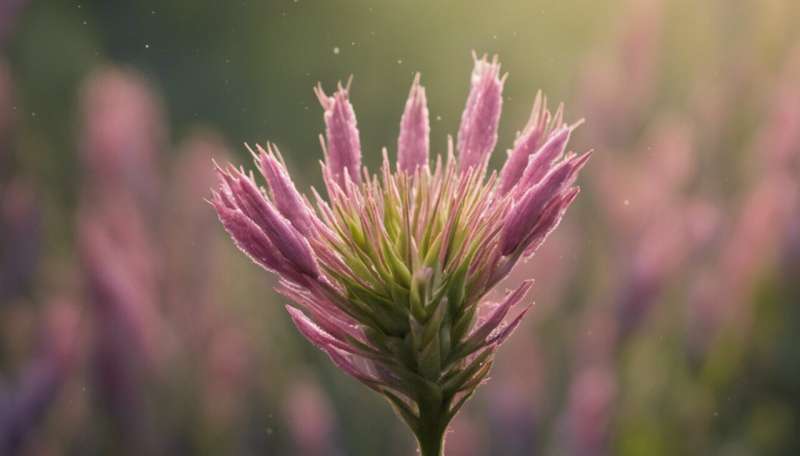Invigorating plants

One of the key elements of the Green Revolution – when a series of agricultural initiatives dramatically boosted crop productivity worldwide – was the harnessing of hybrid vigour. This phenomenon occurs when the crossing of two inbred strains results in offspring with superior qualities.
Professor Sir David Baulcombe, Regius Professor of Botany in the Department of Plant Sciences, hopes that a new molecular understanding of hybrid vigour could underpin technology-based plant modifications to stave off future food shortages. This time, he believes, “it will be possible to predict precisely which parents will produce the best hybrid and to fine-tune aspects of that improvement, whether it’s yield, drought tolerance or disease resistance.”
Plants have memories too
The story begins with a small interfering ribonucleic acid (siRNA). Plants, like animals, have developed mechanisms to ward off disease and ‘remember’ past infections. One of the most important plant defences against viruses, as discovered by Professor Baulcombe, is called RNA silencing.
Plant cells recognize the foreign genetic material of the virus, copy a section of the viral DNA into siRNA and use it as a ‘specificity determinant’. The siRNA binds to the viral genetic material and, rather like hoisting a molecular flag to identify the marauder, causes a protein called Argonaute to bind and stop the virus from working.
“Just as our immune system can be primed by an infection so that we can fight it off quicker next time, plant cells retain the siRNA as a means of escalating the defence response next time the plant sees the invader,” explained Professor Baulcombe.
“Understanding this opens up the possibility of harnessing the process to protect plants against viral diseases – by furnishing the plant with the siRNA so that it is permanently and genetically able to fight off the disease even though it has never seen it.”
It turns out that the process is of interest not just as a means of protecting crops from pathogens but also because, in modern plants, RNA silencing has diversified into a mechanism that protects them from the effects of ‘selfish’ DNA. This process appears to lie at the heart of hybrid vigour.
Releasing latent potential
Over millions of years, plants have acquired pieces of junk DNA – some are the relics of past viral infections, others are moveable elements capable of ‘jumping’ around the genome; all are termed selfish because, depending on where they end up, the junk DNA can activate or suppress genes. Plants use RNA silencing to shut down the selfish DNA in their genomes.
“We now realise that because different varieties of the same plant have different selfish DNA and different siRNAs to combat it, this could be one mechanism for explaining the mysteries of hybrid vigour,” said Professor Baulcombe. “Crossing two varieties results in a mix of siRNA that is different to that of either parent. In some cases, the new mix optimally turns the right combination of genes on and off and results in an offspring that is better than either parent.”
With funding from the Biotechnology and Biological Sciences Research Council, European Union, Royal Society and Gatsby Charitable Foundation, and the benefit of newly available DNA sequences of many crops, Professor Baulcombe’s team are beginning to exploit this new understanding by predicting which mix of siRNA will produce the improved offspring.
Within their sights is a glimpse of how future plant breeding could change dramatically, by being able to predict on an unprecedented molecular scale how breeders can improve crops by unlocking the latent potential in plant genomes.
Provided by University of Cambridge



















